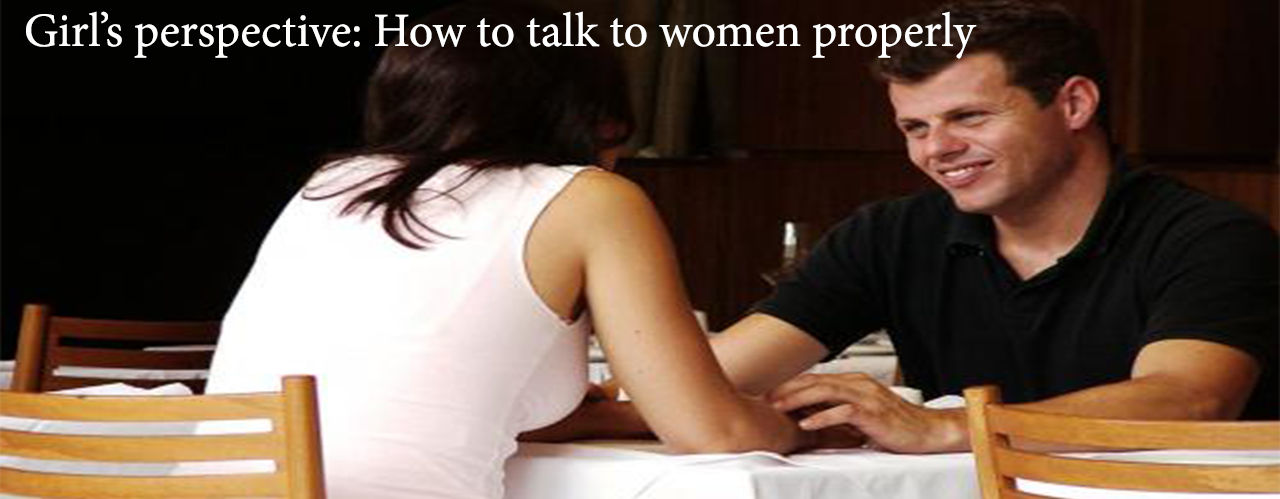Scott Croft | Looking for a completely countercultural path to marriage? Here's how to apply God's Word to dating, finding a spouse and getting married. (soul mate for Christians)
The system today's young men and women have inherited for finding and marrying a future spouse leaves a lot to be desired. We often hear complaints from readers about the confusion, hurt and sexual sin they've encountered despite their best intentions. Many want to know how they can go about getting to know someone and eventually getting married without getting hurt or compromising their faith.
At Focus on the Family, we've offered a range of resources and expert advice bringing biblical principles to bear in this area. Some of the messages we've presented have taken the position that Christians can apply their faith in such a way that they can still work within the system they've inherited. Other messages have stressed that Christians need to be much more counter-cultural. Joshua Harris, for instance, has promoted a model of courtship that harkens back to a model used broadly before modern dating evolved.
People attempting to follow a courtship model within today's culture, however, often run into a lot of practical questions, such as, "What if her dad is unavailable or uninterested in being involved?" or "What do you do when you live hundreds of miles from your family?"
The goal of this series of articles, beginning with this introduction, is to provide our readers with a place to bring those questions. Scott Croft is an elder at Capitol Hill Baptist Church where he teaches a seminar on friendship, courtship and marriage. He is also an attorney who is used to tackling tough questions.
The answers he brings may be different from anything you've heard before. The topics he's going to be dealing with are ones in which equally committed Christians have found different biblical interpretations. Not all will agree with Scott's approach, and we invite feedback from anyone who believes there are better interpretations for the biblical passages Scott draws from.
It's our hope that this Q&A series will be valuable both for those who think the Bible gives sufficient guidance for operating within our current system as well as for those who are looking for a completely countercultural path to marriage.
If you're reading this, you're interested in dating. You've done it, you're doing it, you'd like to do it, or you need to teach somebody else how to do it. Don't worry. You're not alone. In our society, dating has become something of an obsession. It is expected to be a universal phenomenon. It's just something you do if you're single and of age (and that age is quickly dropping) in America. It is considered the natural precursor to marriage, and is generally considered something to be desired, whatever form it might take.
It's also big business. If you were to Google the word "matchmaker," you would receive something in the neighborhood of 11,500,000 responses — with a few of these outfits claiming to be Christian, but most making no such claim. "Dating" will get you 640,000,000 hits.
As evangelical Christians, we're called to be distinct in the ways we think and act about all issues that confront us and those around us. This topic is no exception. So is there such a thing as biblical dating? If so, what is it? How can Christians think differently about this pervasive issue in media and culture? How are we doing so far?
The answer to that last question is "not well." Surveys consistently indicate that professing Christians behave almost exactly like non-Christians in terms of sexual involvement outside of marriage (in both percentage of people involved and how deeply involved they are — how far they're going), living together before marriage, and infidelity and divorce after marriage. In fact, depending on which statistics one believes, the divorce rate for professing Christians may actually be higher than for Americans as a whole. Granted, not all of these people are evangelicals, but we're not doing so well either. Indeed, the central issue we need to confront — and the reason I write and speak on this topic — is that when it comes to dating and relationships, perhaps more than in any other area of the everyday Christian life, the church is largely indistinguishable from the world. That truth has brought immeasurable emotional pain and other consequences to many Christians. Worse, it has brought great dishonor to the name of Christ and to the witness of individuals and the church.
It doesn't have to be this way. For Christians, the Lord has given us His Word, and the Holy Spirit helps us to understand it. We have brothers and sisters in Christ to hold us accountable and to help us apply the Word to our lives. If you're a Christian, that's the biblical life you're called to.
That's what I hope this column will be about — applying God's Word to dating, finding a spouse and getting married.
Scripture Rules
I have to start by explaining the theological doctrine that drives the approach I want to outline (and advocate). That doctrine is called the sufficiency of Scripture. Almost all professing evangelical Christians are familiar with and vigorously defend the doctrine of the inerrancy of Scripture (which states that the Bible is the authoritative Word of God, it's true, and it contains no falsity or error). I certainly agree with the inerrancy of Scripture, but that's not what I'm talking about here. The doctrine of the sufficiency of Scripture assumes inerrancy but then goes a step further. This doctrine simply holds that the Bible is sufficient to guide and instruct us authoritatively in all areas of our faith and life, and that there is no area of life about which the Bible has no guidance for us. The sufficiency of Scripture is taught explicitly and implicitly in many passages, but perhaps the most obvious is 2 Timothy 3:16-17:
All Scripture is God-breathed and is useful for teaching, rebuking, correcting and training in righteousness, so that the man of God may be thoroughly equipped for every good work.
So how does the sufficiency of Scripture apply to our coming discussions? Well, many evangelicals who otherwise believe in the inerrancy of the Bible and who might generally agree with the sufficiency of Scripture have nonetheless embraced the world's ideas about dating. In doing so, some make the argument that Scripture doesn't speak to this topic. I believe it does. The Bible speaks to every area of our faith and life at some level. Some things it talks about explicitly, like salvation or sanctification or marriage or elders. The Bible guides us in some areas by broader, more general principles and ideas we can build on as we strive to live the Christian life in practical ways. In either case, no area of life falls totally outside of the guidance and authority of God's Word.
My point is that we cannot simply state that the Bible "doesn't mention dating or courtship," and then think we're off the hook to pursue this area of our lives either on the world's terms or however seems best to us without diligent, submissive reference to God's Word. If the doctrine of the sufficiency of Scripture is true, then God's Word does have authoritative guidance for us about how we might best glorify God in this area of our lives. That means our conversation has to be a biblical conversation. I mention the sufficiency of Scripture as part of the groundwork for this column because it's one of those doctrines that touches every area of our lives, and it is at the heart of the approach to dating (and life) that we'll talk about here.
Biblical Dating
OK. Let's take care of some basic definitions. We may define biblical dating as a method of introduction and carrying out of a pre-marital relationship between a single man and a single woman:
- That begins (maybe) with the man approaching and going through the woman's father or family;
- that is conducted under the authority of the woman's father or family or church; and
- that always has marriage (or at least a determination regarding marriage to a specific person) as its direct goal.
The Scriptural support for the idea of biblical dating is largely by example and implication. We will look at a number of passages over the course of our discussions that support various aspects of biblical dating, but for the moment, let me just give you some references to study:
- 1 Corinthians 6:9-7:19 (command to be pure, seriousness of sexual sin and instructions regarding marriage)
- 1 Thessalonians 4:1-8 (do not wrong or defraud one another in relationships — by implying a relationship or commitment by your words or conduct that does not actually exist)
- Song of Solomon 2:7 ("do not awaken love before it pleases" — i.e. before the proper time, meaning marriage)
- Proverbs 6:20-7:27 (warning to avoid sexual sin and foolish relationships)
- James 1:13-15 (temptation is to be taken very seriously)
- Romans 13:8-14 (love others, work for their soul's good; don't look to please self)
- Romans 14:1-15:7 (favor others, not self … value what's good to their souls)
- 1 Timothy 5:1-2 (treat single women as sisters in Christ, with absolute purity)
- Titus 2:1-8 (young men and women should focus on self-control/godliness)
- John 14:15 (if you love Christ, you will obey His commands — read: above your own desires — and live biblically)
We'll talk more about these and other passages as we deal with other topics in this series.
Modern Dating
We may basically define modern dating as a method of introduction and carrying out of a pre-marital relationship between a single man and a single woman:
- that begins with either the man or the woman initiating with the other;
- that is conducted outside the formal oversight or authority of either person's family or church; and
- that may or may not have marriage as its goal and is often purely "recreational" or "educational."
Now, the biblical support for the modern approach to dating … (insert crickets, tumbleweeds, person whistling here)…. That was it. There isn't any. The very idea of extended romantic or sexual involvement outside of marriage doesn't even appear in Scripture unless it is described as illicit (sinful). Furthermore, it doesn't even appear in any society, western or otherwise, in any systematic way until the 20th century. While the principles supporting biblical dating have their beginnings with the very structure of the family, modern dating has its origins with the sexual revolution of the 1960s. It is brand new, and yet, seemingly, it is all we know.
Differences Between Modern Dating and Biblical Dating
So what's the real difference? Here are some fundamentals:
Modern dating philosophy assumes that there will be several intimate romantic relationships in a person's life before marriage. In fact, it advocates "playing the field" in order to determine "what one wants" in a mate. Biblical dating has as its goal to be emotionally and physically intimate with only one member of the opposite sex … your spouse.
Modern dating tends to be egalitarian (no differences between men and women in spiritual or emotional "wiring" or God-given roles). Biblical dating tends to be complementarian (God has created men and women differently and has ordained each of these spiritual equals to play different and valuable roles in the church and in the family).
Modern dating tends to assume that you will spend a great deal of time together (most of it alone). Biblical dating tends to encourage time spent in group activities or with other people the couple knows well.
Modern dating tends to assume that you need to get to know a person more deeply than anyone else in the world to figure out whether you should be with him or her. The biblical approach suggests that real commitment to the other person should precede such a high level of intimacy.
Modern dating tends to assume that a good relationship will "meet all my needs and desires," and a bad one won't — it's essentially a self-centered approach. Biblical dating approaches relationships from a completely different perspective — one of ministry and service and bringing glory to God.
Modern dating tends to assume that there will be a high level of emotional involvement in a dating relationship, and some level of physical involvement as well. Biblical dating assumes no physical intimacy and more limited emotional intimacy outside of marriage.
Modern dating assumes that what I do and who I date as an adult is entirely up to me and is private (my family or the church has no formal or practical authority). Biblical dating assumes a context of spiritual accountability, as is true in every other area of the Christian life.
Basically, we can make three general statements about modern dating vs. biblical dating in terms of their respective philosophies:
- Modern dating seems to be about "finding" the right person for me (as my friend Michael Lawrence has written on this site, "Stop Test-Driving Your Girlfriend"); biblical dating is more about "being" the right person to serve my future spouse's needs and be a God-glorifying husband or wife.
- In modern dating, intimacy precedes commitment. In biblical dating, commitment precedes intimacy.
- The modern dating approach tells us that the way to figure out whether I want to marry someone is to act like we are married. If we like it, we make it official. If we don't, then we go through something emotionally — and probably physically — like a divorce. In biblical dating, Scripture guides us as to how to find a mate and marry, and the Bible teaches, among other things, that we should act in such a way so as not to imply a marriage-level commitment until that commitment exists before the Lord.
I'm supremely confident that as we go back and forth in the coming months, some — perhaps many — of you will disagree (if you don't already) or be initially annoyed at some of my statements. Ask yourself why. What are you trying to hold onto that you think this approach will take from you (privacy, autonomy, a secular idea of freedom or of your own rights)?
I have a particular challenge for those of you whose main objection is that the practical details we'll talk about here "are not explicitly biblical": think about the details of how you conduct (or would like to conduct) your dating life. Can you find explicit support for the modern approach in Scripture? Are there even broad principles in Scripture that justify the modern vision of dating (or yours, whatever it may be)? The Bible simply doesn't give us explicit instructions on some of what we'll discuss. Fair enough. In such a situation, we should ask what gets us closest to clear biblical teaching. In other words, within the many gray areas here, what conduct in our dating lives will help us to best care for our brothers and sisters in Christ and bring honor to His name?
That's it. That's a basic framework for biblical dating as best I can discern it from the principles of God's Word. Now, you're on. No question is too broad or too specific, too theoretical, too theological, or too practical. Agree with what I've said, or challenge it. This is how iron sharpens iron.
Scott Croft served for several years as chairman of the elders at Capitol Hill Baptist Church in Washington, D.C., where he wrote and taught the Friendship, Courtship & Marriage and Biblical Manhood & Womanhood CORE Seminars. Scott now lives in the Louisville, Ky., area with his wife, Rachel, and son, William, where he works as an attorney and serves as an elder of Third Avenue Baptist Church.
Just remember one thing: we're in this together — for His Glory.



